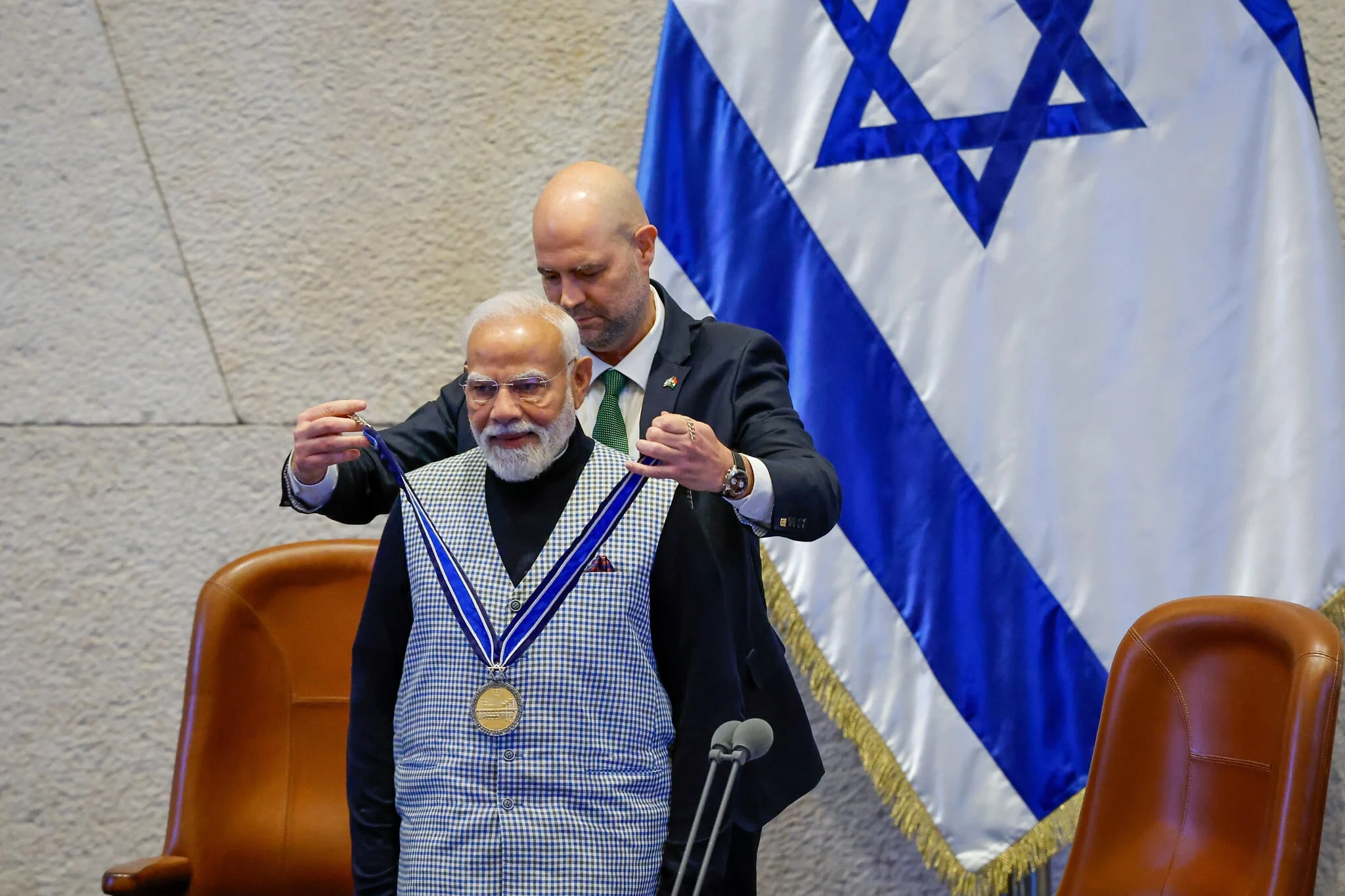Israeli firms at the Viva Technology Show displayed software taking over what we assumed were exclusively human preserves.
But if Ramat Hahayal-based start-up Intervyo, headed by Jacky Hazan, is any indication of the future, and it is, BuzzFeed’s Peretti may be wrong. In an era when, on average, more than 200 candidates are being interviewed for single job postings by large companies, Intervyo will revolutionize corporate Human Resource departments.
Hazan’s presentation video shows a candidate being interviewed by a robot with a human face. Every bit of data possible about the candidate is analyzed by the software, including answers, voice, gestures, and physical and psychological aptitude and attitude, and collated to rate the candidate at high speed.
« Interviewing job candidates has always been a job for humans,” commented Hazan, sitting at a table at the Israel Pavilion, one of fewer than a handful of country pavilions at the show. “So our solution is controversial, to say the least. And some companies are afraid. »
Hazan, born and raised in Montreal, and in Israel for 20 years, said that his was not the only product on the market, but added, “We are pioneers, because the automated interview is followed by a rapid 360° analysis with no subjectivity. »
This is a shift from manual to automated HR work. “Some companies are wondering, can the virtual interviewer do the job? Others are afraid that the robot will do a better job,” Hazan continued in English and French. With funding in Israel, Intervyo is perfecting its system every day, Hazan added, explaining that because the team is small, he is what Israelis call the kodkod, the do-everything captain.
He is putting together a team in France, where he already has two or three clients, to serve as the point d’entrée to Europe. Hazan said he could soon be signing a strategic alliance with a French corporate giant, which he declined to name.
And the market is clearly there, because the 200-candidate figure per job posting is “very modest,” he noted, citing the example of a posting in China by French giant L’Oréal that received 60,000 candidates. “The more attractive and well-known the company, the more candidates every posting receives,” he said.
Indeed, interviewing hundreds of job candidates has become an HR nightmare, and the dramatically reduced workload proposed by Intervyo may be a real-time solution.
Fourteen Israeli start-ups are based at the pavilion, with 17 others at the stands of various corporate giants. For example, Trucknet is a cloud based transport optimization platform that uses a smart freight exchange to improve efficiency and profitability while reducing environmental impact. It is, like Intervyo and most of the Israeli start-ups present, a B2B solution.
For Omri Halevi, the CEO of Mobile Research Labs, the VivaTech show was a hit and run operation, but he did stay long enough to comment, “This is the most impressive tech show I’ve ever seen in Paris. »
MRL offers solutions to media giants to “detect exposure to media and advertising impact.” Clients include Google-France, radio in China and TV in Germany. He too has a deal to be signed in France.
Prompted by a journalist, Halevi delved into the subject most absent at the show: politics. “Last year, I met entrepreneurs from Ramallah with a tourism start-up,” he said. “I offered to work with them, but they didn’t get back to me. I think the Palestinians should be a part of the start-up success story in Israel. It could be a stabilizing factor between the two peoples, » he added.
Suddenly the Israel Pavillon was full of people. It was Happy Hour. The tiny sandwiches were welcome, but it was simply too hot to enjoy the good Israeli red wine. Faces and necks were shiny with perspiration being wiped with napkins. Séphora Cohen, from the business department of the Israeli embassy, was on the run refilling glasses of cold water. When the French decide one day to invent air conditioning, this tech show, organized by advert giant Publicis and business media Les Echos, will be a truly cool affair.
Publicis Groupe CEO Maurice Lévy was personally involved in putting together this VivaTech show, and was especially interested in the participation by Israeli start-ups, but had nothing to do with the lack of air conditioning in the hall!! In fact, he is joining the board of directors of the Peres Peace Center in Jaffa. Super high energy Start-up Nation Central head Jeremie Kletzkine agreed about the lack of AC, but commented that “good things are happening here” in spite of the heat. He counts more than 5,500 start-ups in Israel, and helps organize logistics for dozens of business delegations visiting from France.
« Many start-ups in France are simply small businesses,” he explained. “In Israel, any revenue goes directly to R&D. Salaries are paid by investor funding.” He recently did a presentation to the MEDEF, the French association of business called “Ingredients for Innovation”.
In a ninety-minute session at the show devoted to Israeli startups, Maurice Lévy began with a tribute to Shimon Peres, and introduced Peres’s son Chemi Peres, head of Pitango, a huge venture capital fund, who said, « My father believed that science and technology, and research and education, are the way to bring up standards in developing countries.” He mentioned the forming of something called the “Israeli Innovation Center”, noting that his father had offered to build innovation centers in developing countries, part of what is known in Hebrew as “tikun olam”, or repairing the world. “Global enterprises may be as responsible for shaping the future of millions of people as governments are,” Peres said.
Peres and Lévy left the stage to be replaced by the Israeli godfather of high-tech entrepreneurs, Yossi Vardi. With him were Adam Singolda, founder and CEO of Taboola, and Shahar (Dave) Waiser, founder of Gett. The former is the New York-based wildly successful content recommendation site, founded in 2006, responsible for the “you might also like…” that appears at the bottom of PC screens. It provides billions of content suggestions to hundreds of millions of users each month, and sells analytics to publishers and brands.
Gett, founded in 2011, is the rival of Uber, and has 700 employees, 250 of whom are in Israel.
The discussion, all in English in front of a full house, revolved around becoming a unicorn, a one billion dollar company. Both Taboola and Gett are in the unicorn club. Waiser knows he has a good thing going that will get better. He noted, “Only 5% of miles driven are by on-demand cars. 95% of miles are driven by car owners.” This market can only expand, and with it, Gett’s revenues.
Singolda recalled “I had no job experience at all when I founded Taboola.” He had just spent seven years in the IDF, he explained. At any other gathering in Paris, that might have provoked some negative reactions, but politics was decidedly not on the agenda at VivaTech.
For Ron Waldman from the CCIF (Chambre de Commerce Israel-France), precisely because France is still in fourth place, far behind Great Britain, Germany and Italy, for business done with Israel, “it is important to be present at this show. And we must bring more French companies to Israel,” he said.
Noting that new French President Emmanuel Macron has visited tech companies in Israel and is very interested in innovation, he said this can only be good for Israeli-French business relations.
Published by Globes [online], Israel business news – www.globes-online.com – on June 19, 2017
© Copyright of Globes Publisher Itonut (1983) Ltd. 2017





